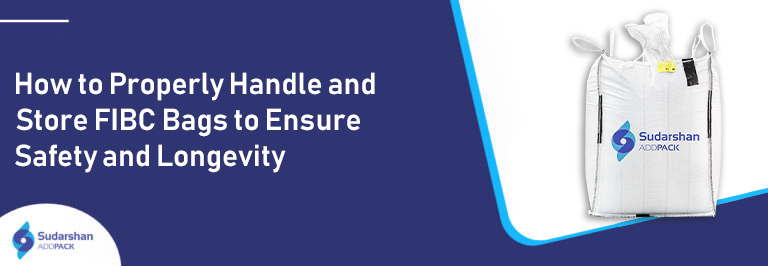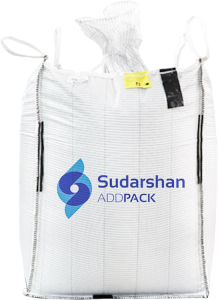
How to Properly Handle and Store FIBC Bags to Ensure Safety and Longevity
FIBC bags, also known as bulk bags, are large and heavy-duty containers used for transporting and storing various materials such as grains, chemicals, and construction materials. Due to their large size and weight, it is essential to handle and store them properly to ensure the safety of the workers and the longevity of the bags.
Being a Prominent and leading FIBC bags manufacturer in India we supply our bags to several industries, including agriculture, construction, and chemical processing. Due to their large size and weight, it is essential to handle and store them properly to ensure the safety of the workers and the longevity of the bags.
In this blog, as suggested by our company’s experts we will discuss the most appropriate tips and tricks to proper handling and storage techniques for FIBC bags.
Introduction to FIBC Bags
FIBC bags are made of woven polypropylene fabric and have a weight capacity of up to 4000 pounds. Coming in various shapes and sizes, including U-Panel, circular as well as rectangular, these bags are used in several industries such as agriculture, construction, and chemical processing.
Proper Handling Techniques
Proper handling of these bags is crucial to ensure the safety of the workers and the materials being transported. Here are some guidelines to follow when handling these bags:
1. Check the Bag’s Condition
Before handling, inspect it for any damages, tears, or holes. An imperfect bag can restrict the material being transported as well as the safety of the workers. If you notice any damages, do not use the bag and dispose of it properly.
2. Use Proper Lifting Techniques
Only with the proper lifting techniques the bag should be lifted and never lift the bag by the loops or the corner seams as they are not designed to bear the weight of the bag. Instead, use a forklift or hoist to lift the bag from the bottom or the side seams.
3. Avoid Overloading the Bag
Overloading this bag can cause it to burst, compromising the safety of the workers and the materials being transported. Always adhere to the bag’s weight capacity and fill it only to the designated level.
4. Secure the Bag Properly
After filling this bag, ensure that it is secured properly before transporting it. Secure the bag using straps or ropes to prevent it from moving during transportation.
Proper Storage Techniques
Maintaining Proper storage of these bags can ensure their highest order of longevity and accordingly minimize their damages. Here are some guidelines to follow when storing these bags:
1. Store Bags in a Dry and Cool Place
Keep these bags away from direct sunlight and provide them a dry and cool environment. Exposure to sunlight can cause the bag’s fabric to weaken, compromising its strength and longevity.
2. Keep Bags off the Ground
Bags should be stored off the ground to prevent any damages to the bottom seams. Use pallets or racks to keep the bags off the ground.
3. Avoid Stacking Bags Too High
Stacking the bags too high can cause them to collapse, compromising their integrity and safety. Always adhere to the recommended stacking height provided by the manufacturer.
4. Check Bags Regularly
Regularly inspect these bags for any damages, tears, or holes. Address any issues immediately to prevent them from worsening and compromising the safety of the workers and the materials being transported.

What Did You Learn?
Overall, properly handling and storing FIBC bags is crucial to ensure their safety and longevity. Always remember to inspect the bags before use and repair any damages before putting them into service.
Train your employees on the proper handling and storage of these bags, and make sure that they are familiar with the specific requirements of each bag.
Consider the storage location, temperature, humidity, and any other environmental factors that may affect the bags. Keep the bags off the ground and away from any sharp or abrasive objects that could damage them.
In summary, FIBC bags are an essential component of many industries, and proper handling and storage are vital to their performance and safety. By following the guidelines and tips in this blog, you can optimize the use of your FIBC bags, leading to improved efficiency, reduced costs, and most importantly, a safer work environment.

